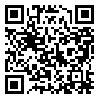BibTeX | RIS | EndNote | Medlars | ProCite | Reference Manager | RefWorks
Send citation to:
URL: http://jmed.ssu.ac.ir/article-1-579-en.html

 , R Gandomkar *
, R Gandomkar * 
 , H Shahsavari
, H Shahsavari 
 , R Shariat Moharari
, R Shariat Moharari 
 , N Niknafs
, N Niknafs 
 , M Shirazi
, M Shirazi 
 , F Fatehi
, F Fatehi 
 , SH Kharrazi
, SH Kharrazi 
 , S Riazi
, S Riazi 

Introduction: Educational Development Centers (EDCs), as the coordinator in education development in Medical Sciences universities, in order to improve their quality should evaluate their activities. In spite of remarkable performance of Tehran University of Medical Sciences (TUMS) EDC in previous national rankings, but it faces many challenges and problems. This paper provided the process, results and lessons learned from a self-evaluation experience conducted at TUMS EDC based on accreditation standards. Method: The present study is an Institutional self-evaluation study based on the national accreditation standards of EDCs (2012). Data were gathered using an open-ended questionnaire developed on the basis of the SWOT format. A directional content analysis applied to analyze the data. Results: In total, 84 point of strengths, 87 weaknesses, 15 opportunities, 24 threats and also 99 recommendations for quality improvement were reported. The most important strengths of the center were the existence of an established mechanism regarding research process in education and scholarship of education, holding various faculty development courses and training standardized patient. The most important weaknesses were the lack of specified procedures in some areas such as monitoring the planning and reviewing of educational programs in the field of educational programs and evaluation of empowerment courses. Conclusion: The present evaluation results will be useful in directing future policies of TUMS EDC such as revising its strategic planning. We hope that the current experience can be helpful for administrators in EDCs in the Ministry of Health and Medical Education and also other Medical Sciences Universities.
Received: 2015/07/6 | Accepted: 2015/11/7 | Published: 2016/03/2
| Rights and permissions | |
 |
This work is licensed under a Creative Commons Attribution-NonCommercial 4.0 International License. |



